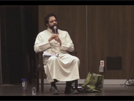The haraamthings and acts of ihraam
- Details
- Hits: 2252
The haraamthings and acts of ihraam
173. The muhrim, i.e. one who is in the state of ihraam, must refrain from 25 issues:
1. Hunting land animals,
2. Sexual intercourse (with one?s spouse),
3. Pleasure seeking with one? spouse,
4. Performing marriage contract or witnessing it,
5. Masturbation,
6. Perfume,
7. Wearing sewn clothing (applicable only to men),
8. Wearing slippers, shoes, or socks,
9. Using Kohl powder on the eyes,
10. Looking in the mirror,
11. Fosuq, which is lying, swearing, and boasting,
12. Jidaal, which is to enter into arguments, disputes, or Quarrelling,
13. Killing insects found on humans [such as lice],
14. Beautification,
15. Applying oil,
16. Removing hair (from the body),
17. (Using) Henna,
18. Covering the head (in the case of men),
19. For a woman to cover her face,
20. Sheltering in shade, for men,
21. Causing bleeding,
22. Clipping the finger nails,
23. Pulling a tooth,
24. Wearing arms/weapons,
25. Uprooting a tree or any vegetation of the Haram.
1. Hunting land animals
174. It is forbidden for a muhrim ? one who is in the state of ihraam ? to hunt a land [/air] animal, excluding other animals. It is also forbidden to catch the animal, or help in its hunt, even by guiding (the hunter) or pointing (to it) or encaging it, or any other means in the hunt process. It is also forbidden to slaughter the animal or eat from its meat.
175. It is permissible to kill savage predatory animals if the muhrim feared them. It is also permissible for non-muhrim to kill birds of prey if they hurt the pigeons of the Haram, however, the muhrim, as a precaution, should abstain from killing them.
176. If he hunted a game or slaughtered it, (it would count as) meetah ? dead animal meat ? and thus it is forbidden for him or anyone else to eat from it, and one may not perform the prayers wearing the leather made from its skin.
177. It is prohibited to hunt a land animal, but a sea animal is not prohibited to hunt. By sea animal it is meant those animals that live, reproduce and grow in water, even in little streams of water. Also it is not prohibited to slaughter a tame animal, even if had turned wild.
178. The ruling of the young is the same as its parent, and so too is that of the egg. As for lotus, it is classified as a land animal, and therefore it may not be hunted, and it is forbidden to eat.
179. If there was a doubt as to whether the animal is of land or sea, it is not mandatory to avoid it.
180. Just as it is forbidden for a muhrim to hunt even outside the Haram, it is also forbidden for a non-muhrim to hunt within the boundaries of the Haram, and he is liable to a kaffaarah just as a muhrim is, although the kaffaarah may sometimes differ. If a muhrim killed an animal within the boundaries of the Haram, he is liable to the cost of the animal as well as the kaffaarah.
Kaffaarah
of hunting
181. The following kaffaaraat [compensations, penalties] are obligatory in hunting:
? Hunting an Ostrich is liable to the kaffaarah of a camel.
? Hunting a wild cow is liable to the kaffaarah of a tame cow.
<? Hunting a Zebra is liable to the kaffaarah of a camel or a tame cow.
? Hunting a deer, a rabbit, or a fox is liable to the kaffaarah of a sheep.
182. If one hunted [an animal] that is liable to a camel, but was unable to find a camel, he should? with the cost of a camel ? buy wheat and divide it between the poor. However, it would be sufficient to give food to sixty poor people, each receiving one modd of wheat. Each modd is equivalent to approximately 750 grams. If he was unable to give that, he should fast for 18 days instead. The fasting does not need to be consecutive, and he can fast a few days at a time if he wished.
183. If one hunted [an animal] that is liable to a tame cow, but was unable to find a cow, he should buy wheat ? with the cost of a cow ? and divide it between the poor. However, it would be sufficient to give food to thirty poor people, each receiving one modd of wheat. If he was unable to give that, he should fast for 9 days instead.
184. If one hunted [an animal] that is liable to a sheep, but was unable to find one, he should give food to ten poor people, each receiving one modd of wheat. If he was unable to give that, he should fast for 3 days instead.
185. If the muhrim hunted a pigeon or a similar bird, and slaughtered it, he must compensate for this by [offering] a sheep. If he broke a pigeon egg and the like, and there was a chick inside that had life, he is liable to [offering] a sheep, and if the chick was motionless, he is liable to the cost of the egg, which he should give to charity.
186. If a non-muhrim caught and killed a pigeon or other similar bird within the boundaries of the Haram, then he is liable to either give one Dirham[19] to the poor, or give him the cost of the bird, although the second option is preferable as a precaution.
187. If he hunted a sand grouse, partridge, and such like, he is liable to a sheep.[20]
188. If he hunted a sparrow, wren, skylark, and the like outside [the limit of] the Haram, he has the option of giving either the cost of the kill or a modd of wheat to charity. If he was inside the Haram, his liability is twice, and so too if he hunted a young. If he broke its egg, he should give the cost of it to charity.
189. If he killed a lotus, he has the option of giving a handful of wheat or one date to charity, but if he hunted a lot of lotuses, he is liable to kaffaarah of a sheep. If there were many lotuses on the road, it is incumbent on the muhrim to choose an alternative route. If this was not possible, and some of the lotuses died as a result of him stepping over them, he is not liable to anything.











